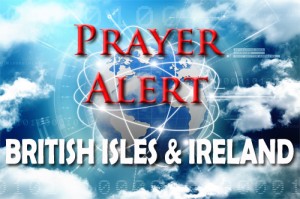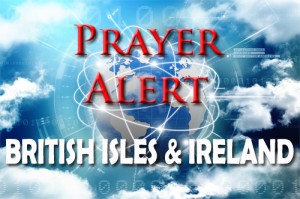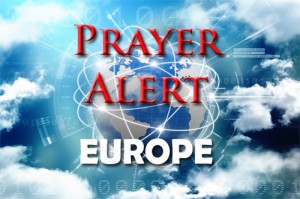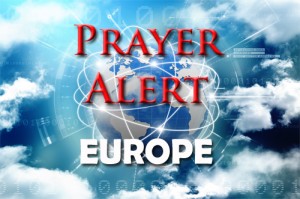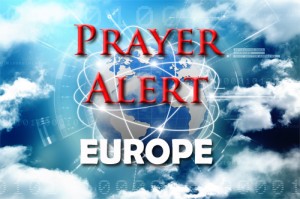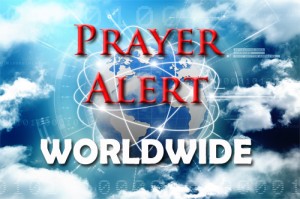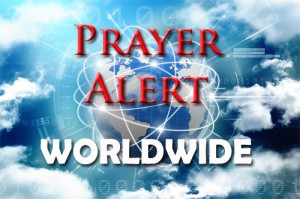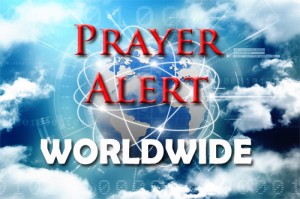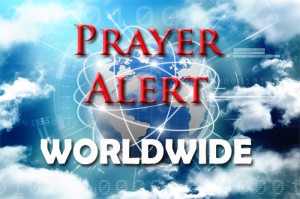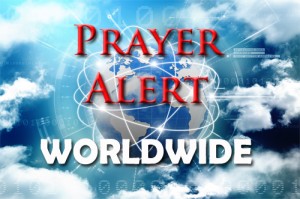Displaying items by tag: Religion
Review of English cathedrals’ governance
Bishop Donald Allister’s report on financial problems at Peterborough Cathedral has led the Archbishops of Canterbury and York to commission a working group to review the governance of English cathedrals. The group has been established at a time when a number of cathedrals are facing financial and other difficulties. One of its tasks will be to advise the Archbishops’ Council on whether the Cathedrals Measure – the 1999 legislation that sets out the regulations that cathedrals must follow in their administration – needs to be revised. Bishop Allister made 20 recommendations regarding the cathedral’s management; and he offered ‘reflections’ to the House of Bishops and the national church institutions. He said that he believes that there are lessons to be learned from the Peterborough situation by the Archbishops’ Council, the House of Bishops, the General Synod, and the Deans’ Conference.
Transform the world with Jesus
This Easter and over the coming months there will be many outreach services, and conferences to encourage the people of God to move on in their faith. Jesus said that one day every nation would not only hear the gospel but be transformed by it. Spring Harvest, New Wine, Hillsong, Creationfest, Newday, Big Church Day Out and Soul Survivor are just a few of the many events happening in showgrounds, churches, country estates, and campsites this year. Pray for every event to be full to overflowing, for God to expand people’s vision of the scope of the gospel, and for renewed and empowered people to leave the events and shine the light of Christ into every area of the lives of those in their communities. Pray for millions of new Christians to be birthed this year across our nation.
Easter in Estonia
In Estonia, Easter has many names: for example Ületõusmispüha (resurrection), Lihavõtted (meat-taking holiday, marking the end of Lent), and Munadepüha (egg holiday). Easter Sunday is celebrated with a long lunch, egg painting, and an Easter egg hunt. Decorated eggs are placed in a basket as a centrepiece for the meal table. After lunch is an egg-knocking competition, creating a new champion each year. Competitors tap their egg against their opponent’s, and the shell that doesn't crack is the winner! Easter customs, like egg-knocking and egg-rolling (with the same aims as egg-knocking), come from old folk traditions. The Joshua Project describes Estonia as non-religious.
Easter in Poland
Spring cleaning (wiosenne porządki) is associated with the beginning of Lent. On Ash Wednesday believers have their heads marked with ash at a church service; on Palm Sunday they prepare special palms to take to church for a blessing. The blessed palms are kept in the house for the year. Tradition says they protect the household from evil. The following year they are collected and burnt outside the church to provide the ash for Ash Wednesday. On Holy Saturday every household prepares an Easter basket (święconka) full of Easter breakfast foods. The baskets are taken to the church to be blessed, and the contents eaten the following morning. Easter breakfast is the most celebrated Easter meal in Polish culture, dating back to the 7th century. Before the breakfast begins, families share Easter eggs with each other, wishing their relatives all the best.
Easter in Russia
Easter is celebrated later because the Russian Orthodox church uses the old Julian calendar. On Holy Saturday churches hold night services and organise religious processions around churches. By that time, kulich, the traditional holiday baking symbolising the body of Christ, has already been baked and Easter eggs painted. The morning starts with visiting neighbours and giving Easter eggs. The common phrase on that day is, Khristos voskres! (Christ is risen!), followed by Voistinu voskres (Truly he is risen!) followed by the kiss of peace (triple kissing). Easter is the day of abundant food after the ‘Great Lent.’ A Russian tradition is to deliver gifts to poor families, distant relatives, orphanages, hospitals, prisons and beggars. They say that from Easter to the Ascension Christ, with the Apostles, travels the earth testing everyone for mercy and kindnesses.
The fruit of the Gospel this Easter
Millions will unite to remember one thing this week. ‘He is risen!’ Yet His heart grieves over the Church’s rampant unfaithfulness. Congregations can be filled with cultural Christianity rather than lives fully surrendered to the risen Saviour. Prosperity gospel, works-based gospel, cheap grace, false teachings, sin, self-absorption, and nominalism are blinding and enslaving much of His body across the nations. Matthew 7:16 says, ‘By their fruit you will recognise them. Do people pick grapes from thorn-bushes, or figs from thistles?’
Easter violence
Egypt has had three days of mourning after two bombings of Coptic Christian churches by IS on Palm Sunday, killing 49 and injuring dozens. In response to the attacks, Egypt will set up a supreme council to counter terrorism and extremism. At the end of March Israel reported, ‘Egypt is likely to be subject to an IS terror attack in the near future.’ Eitan Ben-David, head of Israel's counter-terror bureau, said, ‘We don't want to cry wolf but we really believe that the threat is serious.’ In many countries, particularly Nigeria, Easter prompts heightened tension between Christians and Muslims. Nigerian churches will be overwhelmingly full, and Easter Monday is a holiday with crowds gathering at markets, beaches, etc. Historically Nigeria has experienced horrendous Easter church bombings. Other countries also experience Christian / Muslim tensions at Easter. In Pakistan last Easter, 75 were killed and 340 injured in Christian-targeted bombings. See also
Easter in Mexico
Semana Santa (Holy Week) is very important in Mexico. Processions and passion plays take place throughout the country, with different areas and communities celebrating in varying ways and varying degrees of lavishness. On Palm Sunday (Domingo de Ramos) processions re-enact Jesus' triumphal entry into Jerusalem, and woven palms are sold outside churches. Celebrations on Maundy Thursday (Jueves Santo) include visiting seven churches to recall the vigil the apostles kept in the garden while Jesus prayed before his arrest. There are foot-washing ceremonies, and of course Mass with Holy Communion. On Good Friday (Viernes Santo) there are solemn religious processions in which statues of Christ and Mary are carried through towns. People often dress in costumes to evoke the time of Jesus. Passion plays are presented in many communities. The largest is south of Mexico City, where over a million gather. Some places burn an effigy of Judas on Holy Saturday. There are no Easter Bunnies or chocolate eggs in Mexico. People go to church and families celebrate quietly.
Easter in Greenland
There are 3,300 Americans, 7,600 Danes and 44,000 Eskimos in Greenland. Although they profess to be a Christian country, the most important Greenland holiday is National Day followed by Arctic Palerfik (an April dogsled event) and the Polar Circle Marathon. At Easter homes and shops are decorated in green and yellow with branches and daffodils. The Easter symbol is the egg, and a tradition is sending teaser letters. In the weeks before Easter people cut out elaborate letters, on which they write a so-called teaser verse. The anonymous letter is signed with a number of dots corresponding to the number of letters in the sender’s name. The recipient must guess who sent it. The pledge is a chocolate Easter egg redeemed at Easter. The letter is accompanied by a snowdrop, the first flower of the year.
Easter in China
New Catholics are traditionally baptised on Easter Sunday. In recent years, there has been a large increase of baptisms in Catholic churches at Easter time. Chinese Catholic churches don't have an official connection to the Pope. Some established churches treat Easter like a mini Chinese New Year, complete with red paper slogans called chūnlián (春联) on the church building and in the homes. There can be special music and decorations, with Easter eggs given as gifts or sold outside the church. Smaller Christian home groups celebrate, as family or friends quietly or even secretly say simple prayers, talk and meditate on the resurrection of Jesus Christ.
